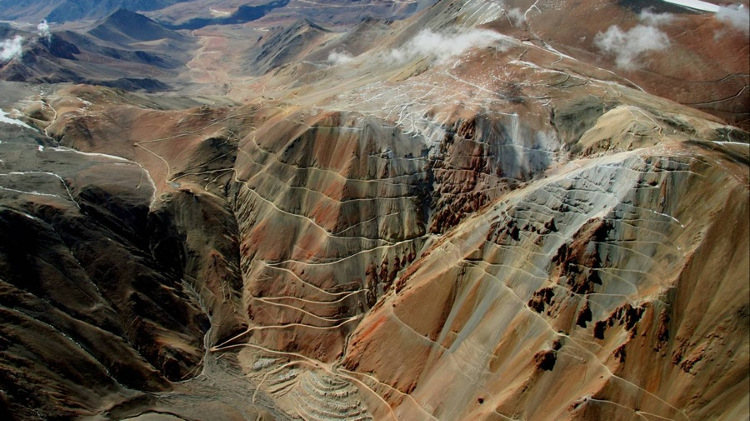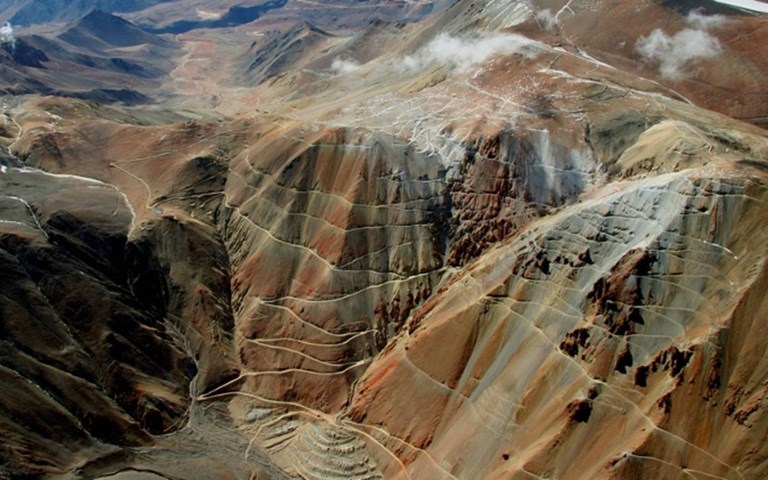The Chilean government ordered Barrick Gold to close all the surface facilities at its Pascua-Lama project, pictured, which straddles the Chile-Argentina border. Courtesy of Barrick Gold.
Welcome back to your weekly mining news recap. At the end of every week we’ll catch you up on the mining news from CIM Magazine and elsewhere that you might have missed. Among this week’s headlines: CROSH gets funding from the Ontario government, TMAC Resources appoints its new CEO and the Canadian government creates a watchdog for mining and oil and gas companies’ conduct overseas.
*****
On Monday Canada’s environment and finance ministers released a draft of the government’s Greenhouse Gas Pollution Pricing Act for public comment, and, with it, clarity on how industrial emitters like mining, oil and gas and potash operations will be affected by carbon pricing. As we reported, in provinces that adopt the federal program rather than create their own, industrial operations will be given an annual limit on the total greenhouse gases they can emit before they need to start paying for each extra tonne they emit. The limit will be set as a percentage of a sector’s national average emissions per unit of product.
Also on Monday, Laurentian University’s Centre for Research in Occupational Safety and Health (CROSH) announced it would receive $310,000 in research funding from the provincial government. The funding will go towards CROSH’s three projects on mobile equipment hazards, increasing Indigenous occupational health and safety in northern Ontario and improving safety for people working with heavy equipment.
Torex Gold announced Monday it had restarted operations at its El Limon-Guajes mine, which has experienced what the miner calls an “illegal blockade” by a union seeking to represent mine employees since early November. Torex suspended employment contracts for its workforce in late December, and regained access to the site through a construction road last week. “More employees will be called back as additional sections of the mine and plant are brought online,” Torex said in a statement.
TMAC Resources appointed Jason Neal, currently the co-head and managing director of BMO Capital Markets’ global metals and mining group, as its new CEO, following Catharine Farrow’s retirement in mid-November, we reported on Wednesday. Neal has been with BMO for more than 20 years, and has been involved with TMAC’s Hope Bay mine in Nunavut as an investment banker since the 1990s.
On Wednesday, Canada’s international trade minister François-Philippe Champagne announced the government was creating an independent watchdog position to focus on the overseas conduct of Canadian mining, oil and gas and garment sector companies. As we reported, the ombudsman will have the power to investigate allegations, report independently, recommend a remedy and monitor its implementation. The role should be a step up from the government’s current extractive sector corporate social responsibility counsellor, who cannot do more than advise companies of their responsibilities and standards.
The Chilean government ordered Barrick Gold to close all the surface facilities at its Pascua-Lama project in the Andes, the Canadian Press reported on Thursday. The project, which straddles the Chile-Argentina border, was suspended by the Chilean government in 2013 over environmental damage and water contamination concerns during the project’s development, and in Chile it has been operating under a temporary closure plan.
Canada’s science and economic development minister Navdeep Bains does not have much time for corporate leaders who claim they would promote diversity if they could just find the people. “That’s a bunch of bullshit,” Bains said during a meeting with University of Windsor law students, according to the Guardian. Bains added that there were many “successful women…who want to sit on corporate boards, who are very talented and looking for the opportunity.” As we reported in October, an Osler, Hoskin and Harcourt LLP report showed that women held just 14.5 per cent of board seats in Canada’s publicly traded companies. At mining companies, that number drops to just nine per cent.



